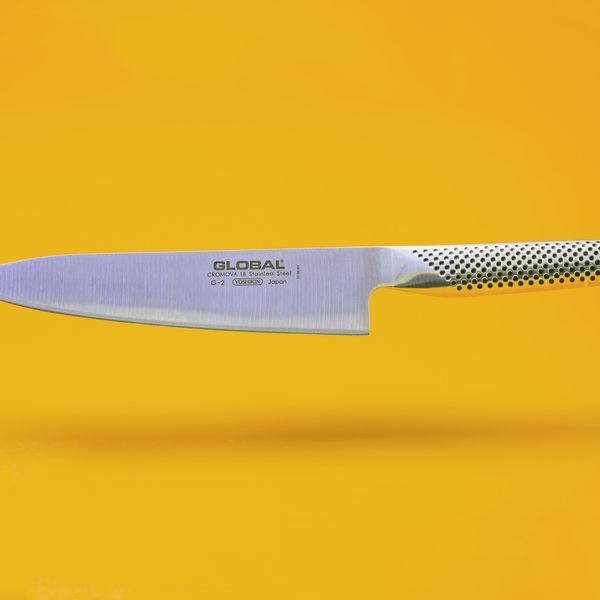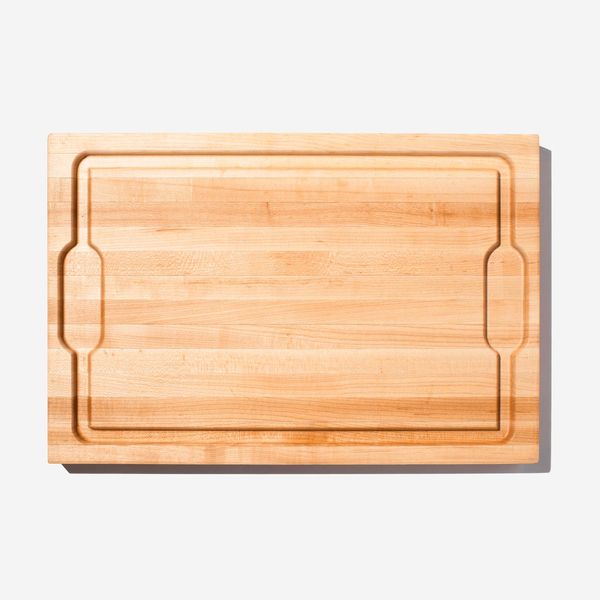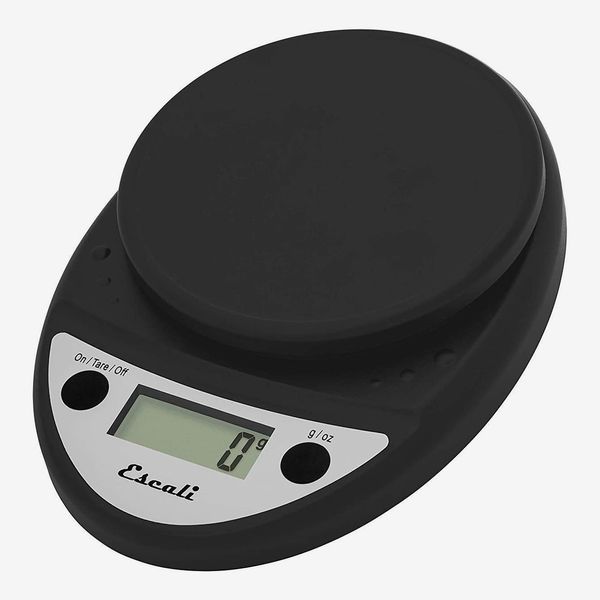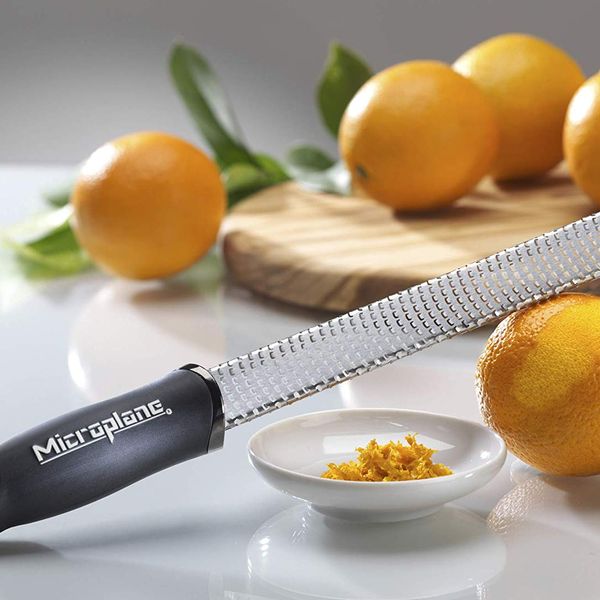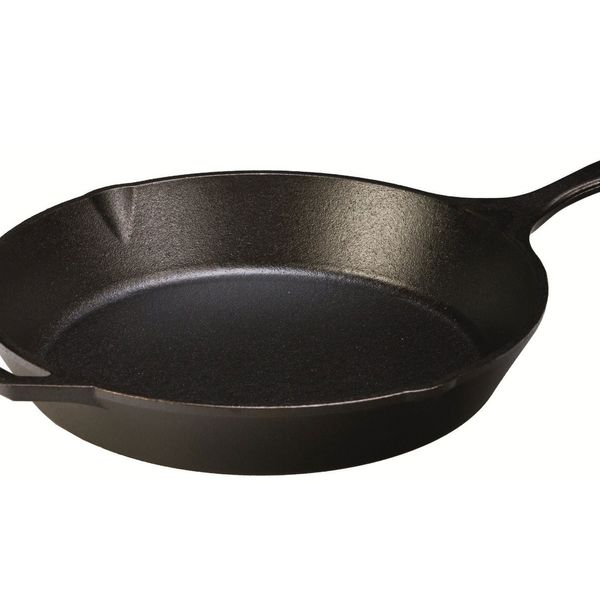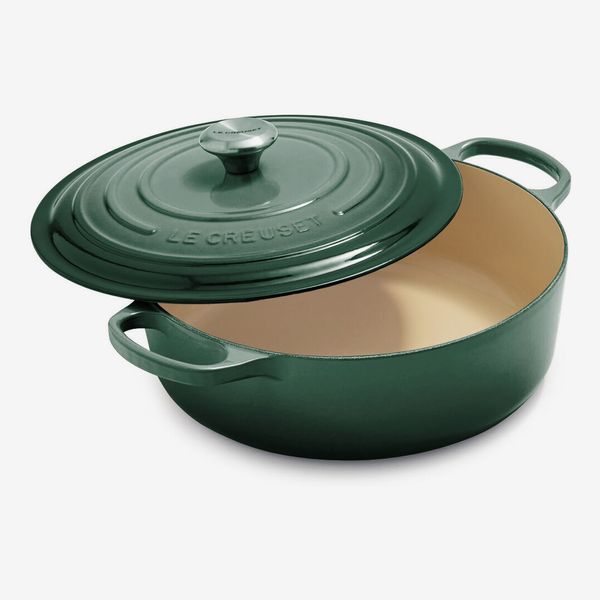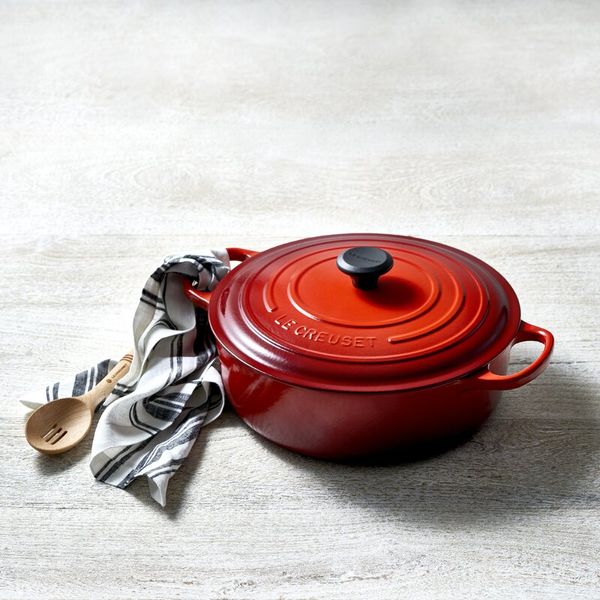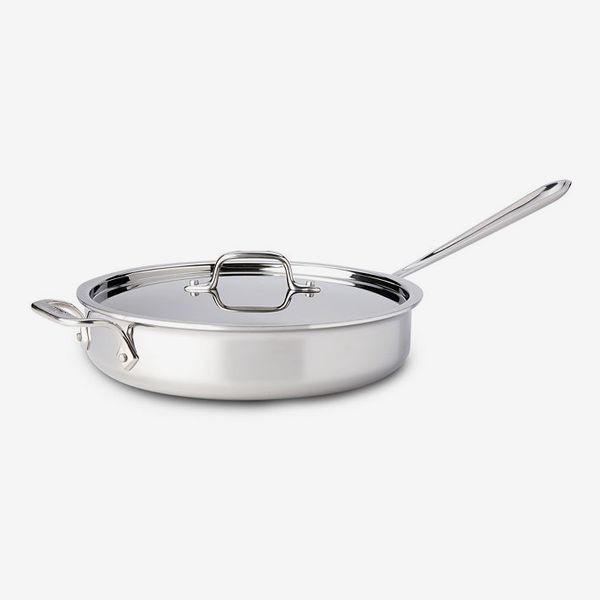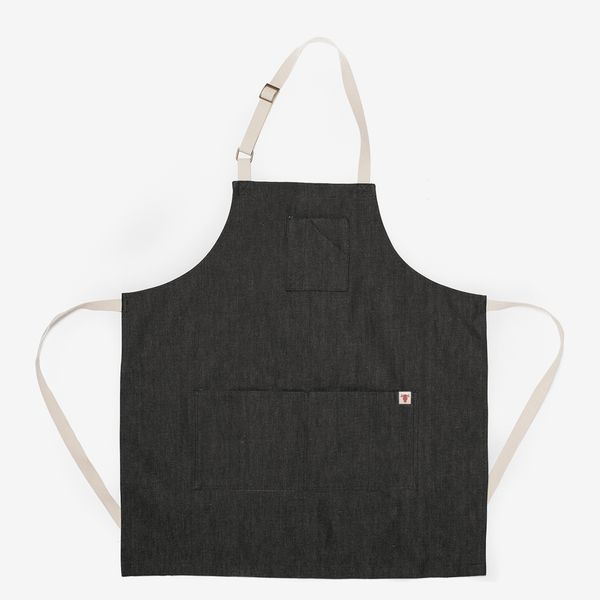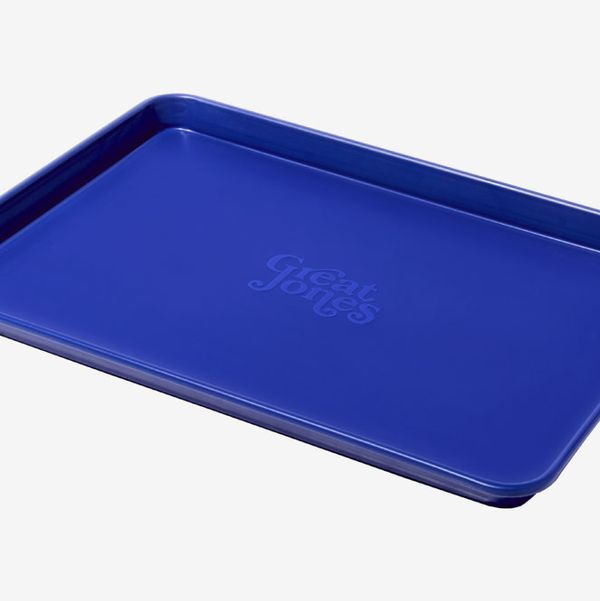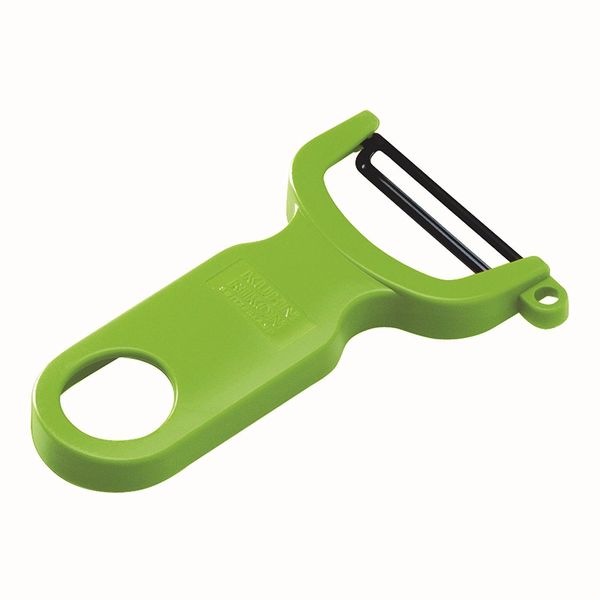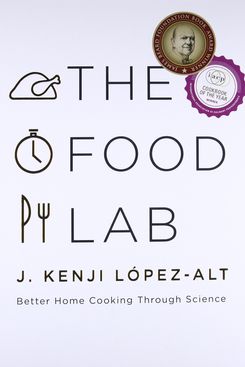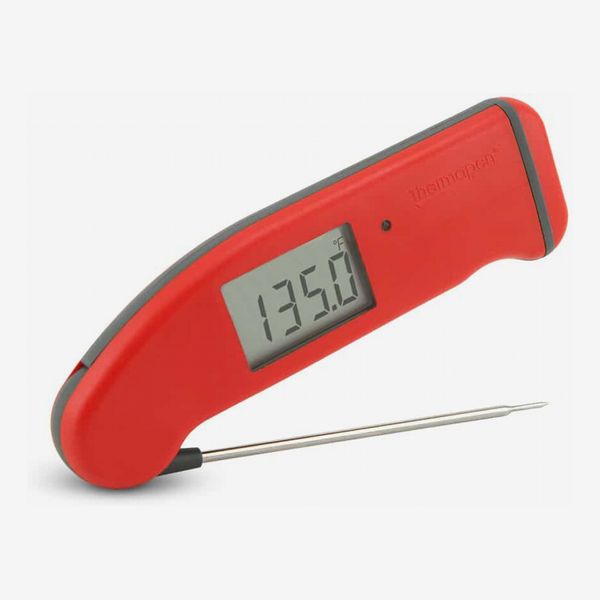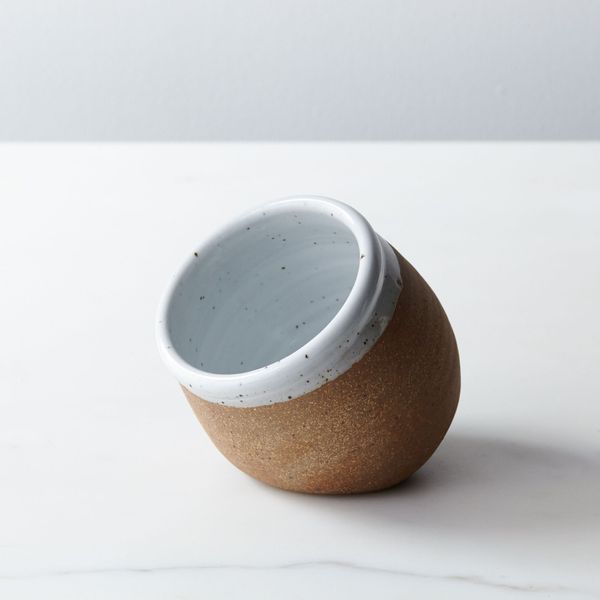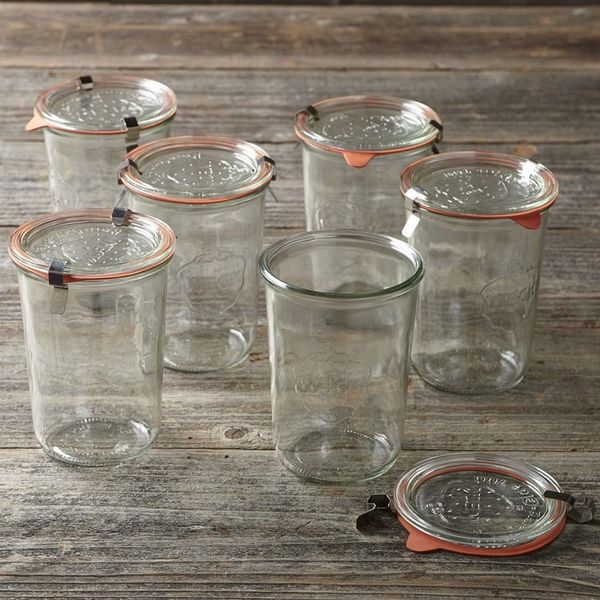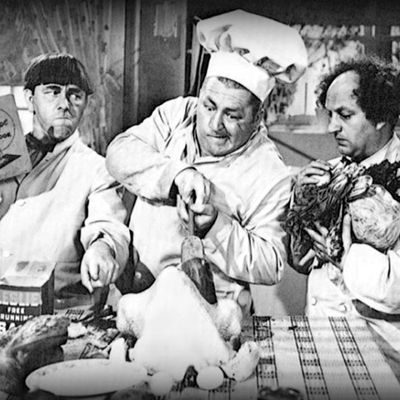
No matter how great of a cook someone is, there was a time when they knew bupkes about making a meal. But you whip up one successful grilled cheese here and an edible roast chicken there, and suddenly you’re cooking with gas (literally). We reached out to 11 professional chefs — who were once themselves novices — to find out what someone who is just learning how to cook needs in their kitchen. From sharp knives to sauté pans that’ll “last you a lifetime of deliciousness,” as one chef promises, here’s everything worth gifting an absolute beginner.
Almost every single chef we spoke with mentioned the importance of a chef’s knife. Chef Walter Smith of Gold Coast in Brooklyn says, “A good-quality and sharp knife makes culinary tasks easier and safer,” while chef Kristen Kish of Arlo Grey says advice on knives is “probably the most-asked question of a chef.” Every chef has a personal favorite, but from our own extensive research, we know the Global G-2 is generally agreed upon as a favorite among chefs.
Chef Fermín Núñez of Suerte in Austin says investing in a good cutting board is essential for novice cooks. (It’s also a fantastic gift for couples!) “You need something that is going to last forever and is easy to take care of,” he says. “Having a proper cutting board will allow the rest of your cooking and preparation to be easy.” His favorite is the block cutting board from Made In. “I truly hate it when I go over to people’s houses and all they have is a small, thin plastic cutting board,” Núñez says. “Thinking about it just makes me mad.”
Editor’s Note: This cutting board is currently sold out, but we’re also big fans of this reversible cutting board from John Boos, available for $74 on Amazon.
More than half of the chefs we spoke with mentioned getting some kind of digital scale. Top Chef finalist Eric Adjepong says, “Kitchen scales are just all-around helpful, and using one is an awesome way to ensure consistency.” Chef Karen Shields, co-owner and executive pastry chef at Smyth + the Loyalist in Chicago, agrees, calling it a “must-have.” Both recommend the spillproof and easy to clean Escali Primo.
Another frequently recommended item: the almighty Microplane. Ed Szymanski of Dame in New York City says one can “dramatically elevate home-cooked food with little effort.” “Try grating bottarga (cured fish roe) on top of soft scrambled eggs, or zesting a lime on top of your next homemade ceviche, and you’ll see why we always keep them on hand in my kitchen,” he says. Kish of Arlo Grey lists even more uses: “It’s great for yielding a light and fluffy snowlike texture from hard cheeses, chocolate, citrus zest, and toasted nuts,” she says. “It’s fantastic for garlic in vinaigrettes and sauces to ensure it ‘melts’ seamlessly into your dishes … the list could go on and on.”
Unsurprisingly, cast iron remains a perennial favorite among the professional-chef set. As Smith puts it, “They’re cheap and last forever, they retain heat really well, and they can be used for cooking almost everything and almost all cooking techniques.”
And for those low and slow recipes, both Shields and chef Andrew Zimmerman of Sepia and Proxi in Chicago say a solid Dutch oven is a must. “This is a go-to pot for nearly everything, from soups and stews, to braises and roasts, to grains and broths,” says Shields. “It’s one pot with so many uses and is worth the money.” Zimmerman, who’s anticipating the upcoming Dutch oven from Brooklyn-based producer Misen, adds that “Dutch ovens can be used to bake amazing bread, and if the lid can double as a grill pan, all the better.”
Zimmerman; Bill Kim, chef-partner at Cornerstone Restaurant Group; and Philadelphia chef Greg Vernick all recommend gifting an All-Clad sauté pan for quick cooking (and quick cleanup). “You need great pans that last you a lifetime of deliciousness,” says Kim. Zimmerman echoes that sentiment, saying, “Nothing is more frustrating than substandard equipment, even for a seasoned pro. Good gear will help you get good results — fact.” With one of these, Vernick says you can learn how to “nail an omelet or crêpes.”
You know how some people can’t work in pajamas? The same goes for a good apron, which will get you in the mood to do some serious cheffing. “I’m a big fan of Stock Manufacturing aprons, made right here in Chicago,” says chef John Manion of El Che Steakhouse & Bar. “They’re super-durable, sans bells and whistles — just a great fit and pockets where you need them.”
Whether they’re baking cookies or mixed root vegetables, beginner home cooks need a solid sheet pan. “The Great Jones Holy Sheet is a great addition for a budding home baker,” says chef Lani Halliday. “It’s sturdy and thick, and you can depend on it to stay nice and flat while affording you an even bake. Plus, the gorge Yves Klein–esque blue that it comes in really pops.”
The time-consuming nature of cooking can be a deterrent to some beginners, but the right tools make tasks like, say, peeling carrots and potatoes much easier. Diane Moua, executive pastry chef for Soigné Hospitality, says her favorite peeler is this one from Kuhn Rikon. (Chef Jordan Andino said the same in 2016.) “I have a few pairs in my tool kit at work, and I have a few at home,” she says. “ My daughter has started to cook more with me in the kitchen, and she literally goes crazy if she can’t locate this peeler.” She adds that it also never dulls.
The world of cookbooks for beginners is massive, but Zimmerman says one of the best for complete novices is J. Kenji Lopez-Alt’s award-winning book The Food Lab, which takes a scientist’s approach to cooking. “It covers a diverse range of cuisines and techniques and does a fantastic job explaining the hows and whys of what makes the recipes work,” he says. “It’s a great primer for understanding how to really cook that will help build anyone’s confidence and know-how in the kitchen.”
If your favorite beginner cook is deathly afraid of food poisoning or just a stickler for precision, they’ll need a cooking thermometer. Manion heartily endorses the Strategist favorite ThermoWorks digital thermometer, which is accurate up to a tenth of a degree. “It’s definitely on the high end of what someone might spend on a thermometer,” says Manion. “But it’s totally worth it.”
A kitchen with beautiful products is always appealing to cook in, which is why Kish recommends gifting a nice salt cellar. “It’s easy to grab and much better than a shaker, and, on top of that, it’s beautiful on your countertop,” she says. “Salt is imperative in any cooking, so why not have your most-used ingredient readily available?” She loves ceramic versions, like those from Robert Gordon Australia, or this attractive one from Sawyer Ceramics.
As a pastry chef, Shields says organization is always top of mind, and it’s imperative for beginner cooks as well. Her all-around favorites for storing flour, sugar, and other ingredients are these airtight containers from King Arthur Flour, while she says the Weck jars are great for everything from “canning and preserving to storing a surplus of salad dressings and sauces. They can go straight from fridge to table too!”
The Strategist is designed to surface the most useful, expert recommendations for things to buy across the vast e-commerce landscape. Some of our latest conquests include the best acne treatments, rolling luggage, pillows for side sleepers, natural anxiety remedies, and bath towels. We update links when possible, but note that deals can expire and all prices are subject to change.
